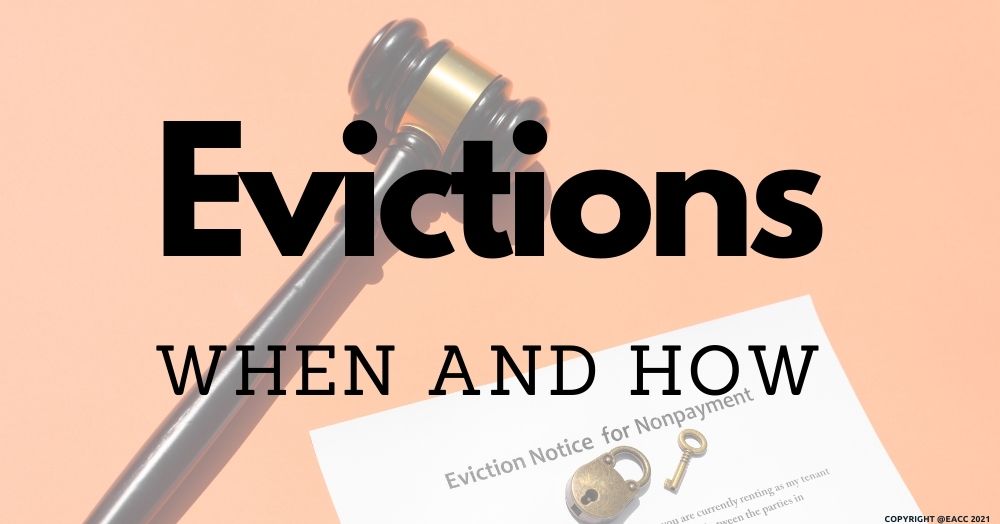Evictions – When and How
This three-minute read explores the reasons why evictions happen and how they are carried out.
Getting to the stage where you have to evict your tenants is difficult for everyone involved and should always be considered as a last resort. It might be deemed necessary when:
- The tenant isn’t paying the rent
- The tenant has abandoned the property
- The tenant has broken a term of the tenancy
Due to the pandemic, the rules have changed as to when you can start eviction proceedings. Also, different tenancy types have different rules as to the process.
There is a very specific process you must follow in order to carry out an eviction. If you don’t, you can be found guilty of harassing or even illegally evicting the tenants.
In England and Wales, if your tenants have an assured shorthold tenancy, the following steps are necessary.
- First, you have to issue a Section 21 notice if you want the property back after a fixed term ends. If the terms of the tenancy have been broken, you must issue a Section 8 notice.
- After the correct paperwork has been issued, you can apply to the court for a standard possession order. This is only appropriate if your tenants haven’t left by the specified date on the notice and they owe you rent. If you’re not claiming for unpaid rent, you can apply instead for an accelerated possession order.
- If the tenants still won’t leave, you can apply for a warrant for possession. This allows bailiffs to get involved to remove the tenants from the property.
If you are owed rent but the tenant claims Universal Credit or Housing Benefit, you may not have to evict them. Instead, you can speak to DWP or the local council, respectively, to have the rent paid straight to you. This is called ‘managed payments’.
In Scotland, if your tenants have a Private Residential Tenancy, the following steps are necessary:
- To end a tenancy, you have to give the tenants a Notice to Leave. This must also have supporting evidence as to the reason why you’re asking them to leave.
- If the tenants don’t leave by the specified date, you can then apply to the First-tier Tribunal for Scotland (Housing and Property Chamber). This is often referred to as ‘The Tribunal’.
The amount of notice you have to give the tenant can be 28 days’ notice or 84 days’ notice, depending on the reasons for ending the tenancy.
It can be easy to get one or more steps wrong throughout these processes. It’s very important that you seek the correct legal advice from appropriate professionals. The cost implications of getting it wrong can be significant, so it’s worth doing it correctly in the first instance.
If you’re a landlord or a tenant in SE18/SE28 and are concerned about possible eviction, please don’t hesitate to get in touch on 020 8316 6616.





